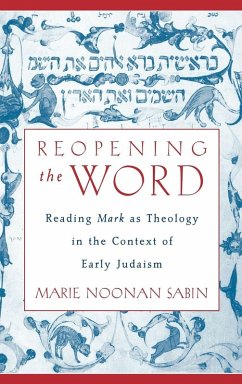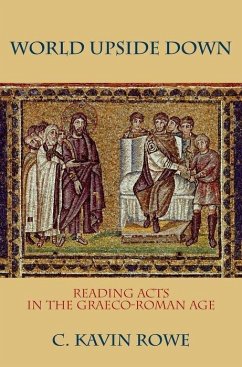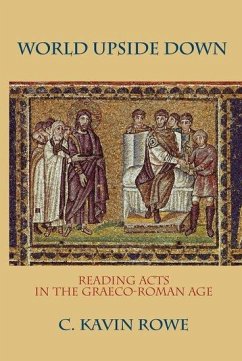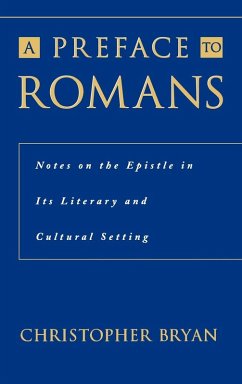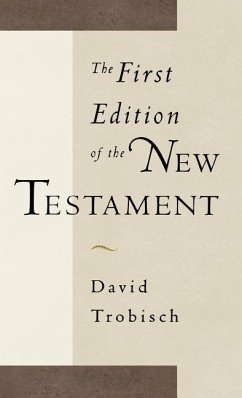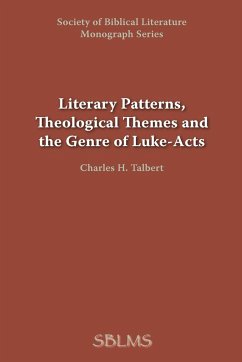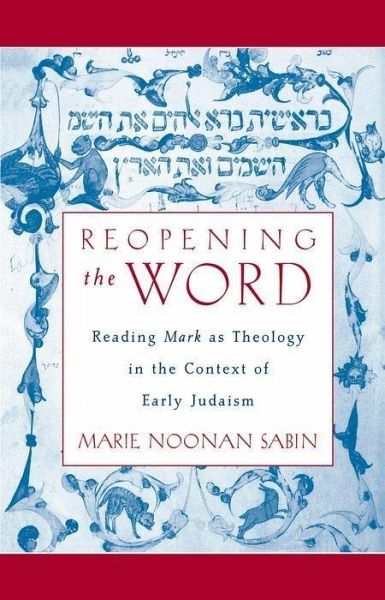
Reopening The Word
Reading Mark as Theology in the Context of Early Judaism
Versandkostenfrei!
Versandfertig in 1-2 Wochen
47,99 €
inkl. MwSt.
Weitere Ausgaben:

PAYBACK Punkte
24 °P sammeln!
"Sabin's many keen observation, provocative suggestions, and intriguing statements throughout the book succeed in giving Mark a theological voice. Offers readers genuine insight for a deliberately reflective reading of Mark."-- The Catholic Biblical Quarterly "This is a very noteworthy volume. In a very complicated field, the author writes in an admirably lucid, uncluttered style and draws upon the vast pertinent sources. The Gospel of Mark is one of the most scrutinized of all the Gospels. Dr. Sabin recognizes that it has been treated theologically, literarily, liturgically, and catecheticall...
"Sabin's many keen observation, provocative suggestions, and intriguing statements throughout the book succeed in giving Mark a theological voice. Offers readers genuine insight for a deliberately reflective reading of Mark."-- The Catholic Biblical Quarterly "This is a very noteworthy volume. In a very complicated field, the author writes in an admirably lucid, uncluttered style and draws upon the vast pertinent sources. The Gospel of Mark is one of the most scrutinized of all the Gospels. Dr. Sabin recognizes that it has been treated theologically, literarily, liturgically, and catechetically; but she is innovative in suggesting a fresh approach to that Gospel....After a very illuminating chapter in which she sets forth the meaning of the term Midrash, she examines Mark as a midrashic document. To show how such a midrashic approach leads to new insights, she juxtaposes her midrashic exegesis of Mark with one of the early Church Fathers and that of a contemporary exegete....The result is a presentation of Mark which is often provocative and enriching: it may prove to be seminal."---W.D. Davies, Duke University "This thoughtful and creative work of scholarship explores Mark's theology from an important vantage point. With deep respect and understanding of the Jewish context of early Christianity, Sabin proposes to read Mark's Gospel as much as possible from the Jewish perspective of its original audiences."-Donald Senior, The Bible Today "Sabin reminds us that in reading Mark's Gospel we must never forget that its author is a first-century Jewish writer who engages the entire Hebrew Bible in communicating his evaluation of Jesus, his followers, and his adversaries. She consequently claims that only an understanding of the Midrashic interpretation of Scripture in Mark's time can unlock the nature of his Gospel. Her aim is to counter longstanding standard approaches to the interpretation of Mark. She is singularly successful. Time and again she produces original insights into our understanding of Mark."--Calum M. Carmichael, Cornell University




